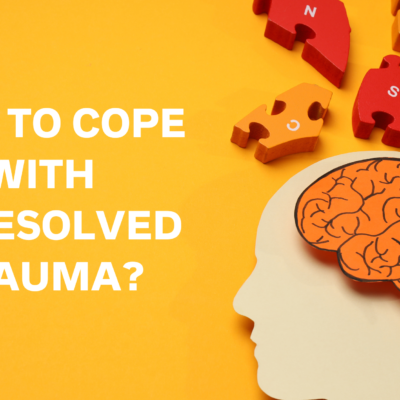How to Cope with Unresolved Trauma: Unresolved trauma from the past can have a long and dark impact on one’s life, which slowly affects our emotional well-being, relationships, and overall quality of life. Whether originating from a single traumatic event or a series of experiences, dealing with unresolved trauma is a difficult process. In this article, we will talk about unresolved trauma, and how to deal with it in detail.
Also Read:
- Signs That You are Emotionally and Mentally exhausted and Prevention Tips.
- Way to Achieve Emotional Mastery.
- How to Stop Being Jealous of Others Success?
- How to Handle The Feeling of Rejection?
- Tips for Becoming Mentally Strong.
What is Unresolved Trauma?
In our roller coaster life, trauma can come in various forms, such as physical, emotional, or psychological, and its effect can be deep and lasting. Unresolved trauma happens when the painful emotions, memories, and reactions connected with a traumatic event stay over time, interfering with day-to-day life and functioning.
It is important to recognize the signs and symptoms of unresolved trauma, which may include flashbacks, nightmares, anxiety, depression, and problems creating and maintaining relationships.
How to Cope with Unresolved Trauma?
Recognize and Validate Your Feelings
The first step in dealing with unresolved trauma is recognizing its existence and validating the connected feelings. Understand that it is normal to feel different emotions, including fear, anger, sadness, or numbness.
Suppressing or denying such emotions can deepen the impact of trauma. Take the time to reflect on your experiences, permitting yourself to feel and express your emotions in a safe and supportive environment.
Seek Professional Support
Dealing with unresolved trauma can be overwhelming, and seeking professional help is an important step in the healing process. Mental health professionals, such as therapists, psychologists, or counselors, are trained to provide the support and advice needed to handle the complexities of trauma.
With the help of therapy, you can analyze your emotions, gain insights into their thought patterns, and develop strategies to manage and overcome the effects of unresolved trauma.
Practice Self-Compassion and Self-Care
Self-compassion is an important part of healing from unresolved trauma. Treat yourself with kindness, understanding, and patience as you start this journey. Engage in self-care activities that encourage physical, emotional, and mental well-being, such as regular exercise, proper nutrition, and enough sleep. Developing a positive relationship with yourself puts the foundation for strength and healing.
Set Healthy Coping Mechanisms
Creating healthy coping mechanisms is important in handling the impact of unresolved trauma. Determine activities that bring you comfort, joy, and a sense of calm. This could include hobbies, mindfulness practices, or creative outlets. Avoid any harmful coping mechanisms, such as substance abuse, self-harm, or extreme avoidance, as they only give temporary relief and can worsen the long-term effects of trauma.
Build a Support System
Staying alone can boost the challenges of handling unresolved trauma. Surround yourself with a supportive network of friends, family, or support groups who understand and validate your experiences.
Share your feelings with a trusted and close person, encouraging open communication and connection. Being surrounded by supportive people can give a sense of belonging and security, helping in the healing process.
Educate Yourself on Trauma and Recovery
Understanding the nature of trauma and the recovery process can let you handle your healing journey more effectively. Educate yourself on the psychological and physiological parts of trauma, and educate yourself with evidence-based healing approaches. This knowledge can contribute to a sense of control and tool over your healing process.
Set Realistic Goals and Expectations
Healing from unresolved trauma is a gradual and nonlinear process. Set realistic goals and expectations for yourself, acknowledging that progress may be slow and may involve setbacks. Celebrate small victories and achievements along the way, acknowledging that healing is a constant journey and not a destination.
Explore Therapeutic Modalities
Different therapeutic modalities can be effective in handling unresolved trauma. Traditional talk therapy, cognitive-behavioral therapy (CBT), dialectical behavior therapy (DBT), and eye movement desensitization and reprocessing (EMDR) are among the many approaches that people may find useful. Explore different modalities with the advice of a mental health professional to decide which suits best with your needs and priorities.
At The End
Dealing with unresolved trauma needs patience, self-compassion, and a commitment to the healing process. By accepting and validating your feelings, seeking professional support, practicing self-care, setting healthy coping mechanisms, and following all the above-mentioned points, you can walk on a path toward healing.
Remember that healing is a personal journey, and progress is special to each person. Be gentle with yourself, and welcome the opportunity for growth and strength on your road to recovery.








